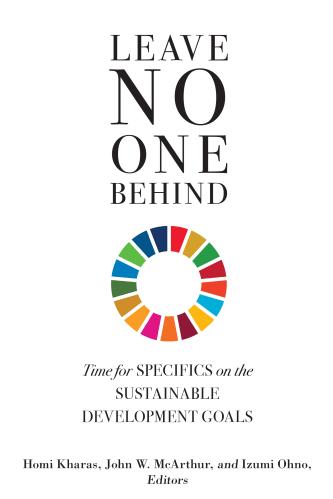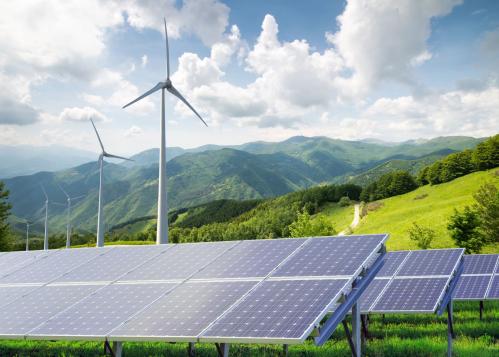International climate talks are just more hot air. That is a common running narrative that lies beneath a decade of coverage, whether reporters criticize weak emissions targets, expect only a “spirit of cooperation,” or note failure to even agree on timelines. But this year, something is different. COVID-19 has led to the postponement of next month’s annual Conference of the Parties (COP) to November 2021. A year without a COP has people asking: What will the impact be on future climate action? How do we facilitate more climate discussion? Suddenly, we want more climate talks.
Coordination at COP
This may seem like a contradiction of sorts, but the reality is that international agreements are only one product of these negotiations. Many of the successes of COP are difficult to quantify or hidden in national climate policies. Informal conversations between international stakeholders at COP can become leverage for policy change at home, as seen in the case of Chile’s ambitious voluntary coal retirement scheme. Based on 24 interviews with senior Chilean officials and decisionmakers, and members of the private sector and civil society groups, we were able to uncover some of how these talks influenced Chile’s own climate policies.
In 2017, at COP23 in Bonn, efforts to combat coal were front and center. The U.K. and Canada had just launched the Powering Past Coal Alliance, a coalition of countries that commit to phase out coal power by 2030. Despite the high-profile launch, many countries—including Chile—never signed on to the pledge. But just over a year later, Chile announced its own plan to retire its entire fleet of coal-fired power plants. What happened?
There were a handful of key developments in the aftermath of COP23. As it turns out, Marcelo Mena, the Chilean minister of environment, was interested in the Powering Past Coal Alliance (PPCA). Mena had been focused on air pollution during his tenure at the ministry, and phasing out coal would hit two birds with one stone: local air pollution and global climate change. However, when representatives of Chile’s electricity generation companies heard that Mena wanted to move forward with a coal phaseout following the PPCA model, they were not supportive. In their view, which was widespread, Chile was not ready to take on such a bold commitment without further analysis. But the generators were ready to start talking about a transition. The Association of Chilean Power Generators, a trade association of private power generation companies, also argued that such a transition needed buy-in from the private sector and other stakeholders. Instead of the Chilean government signing on to the PPCA at COP23, the electricity generators offered an alternative: They would work with the Ministry of Energy and the Ministry of Environment to find a way for Chile to phase out coal on its own terms.
Mena and Minister of Energy Andres Rebolledo had only a few months before the end of the administration, so they had to work quickly. Together Mena and Rebolledo reached an agreement with Chile’s major electricity generators without public spending or specific legislation attached to it. They were able to strike a deal, in part because none of the major power companies were invested exclusively in coal, and Chile’s low solar costs and high solar potential made renewables a much more attractive prospect. Increasing public pressure from civil society organizations worried about air pollution had also led to a series of judicial rulings that increased scrutiny of coal power plants. In January 2018, the government of Chile and the member companies of the Association of Chilean Power Generators agreed that no new coal plants would be developed without carbon capture and storage, and that they would establish a roundtable to discuss the phaseout of existing plants. And when the new minister of energy, Susana Jiménez, took up her post in March, she held electricity generators to this agreement.
Not just hot air
In June 2019, Chile officially announced that power generation companies with coal assets would commit to halt all coal generation by 2040, starting by retiring eight of its oldest plants by 2024. It is also part of a larger initiative to generate all power from renewables by 2040 and make the country carbon neutral by 2050. Chile is not a large emitter in global terms. But for a country that relies on coal for over 30 percent of its electricity generation, this is no small feat. Critics of the plan griped that it was only a voluntary agreement with the four companies that own coal assets and not nearly as ambitious as the PPCA’s original goal of retiring all coal plants by 2030. But this August, the lower house of Chile’s congress pushed forward a proposal that would make the voluntary agreement into a government regulation and shut down coal-fired plants by 2025.
It is unclear whether this plan will be enshrined into law, but one thing is clear: The PPCA was the catalyst. It’s true that the PPCA was missing major signatories, such as Germany, Australia, the United States, and China. And yet its very existence was used as leverage to bring Chile’s energy companies to the table. There are certainly other factors that enabled Chile to reach this coal retirement plan—few domestic coal reserves and a shift away from coal by multinational energy corporations helped—but Minister Mena’s interactions with the Powering Past Coal Alliance may prove to be the inflection point in Chile’s decarbonization process.
Next month was supposed to see the kickoff of COP26 in Glasgow. It would have run from November 9-19, and there undoubtedly would have been a lot of discussions that led nowhere and promises that went unfulfilled. Given the increasingly dire climate situation, the public and experts are justified in being jaded about climate talks and climate inaction. International agreements are difficult to formalize because countries ultimately need to respond to the political economy of their respective nations when crafting ambitious climate policy. But it’s important to appreciate what conversations at COP can mean for climate policy at home. Because of the COVID-19 pandemic, these conversations have been postponed, along with the opportunities that they represent. Let’s hope we have a year to spare.
This article draws on original research conducted with partners at the Duke University Energy Access Project and Universidad Diego Portales in Santiago. The full story of Chile’s transition from coal will be published in mid-2021 as part of a forthcoming book on the political economy of coal transitions, led by the Mercator Research Institute on the Global Commons and Climate Change in Berlin.










Commentary
What COVID-19 has cost the climate
October 29, 2020